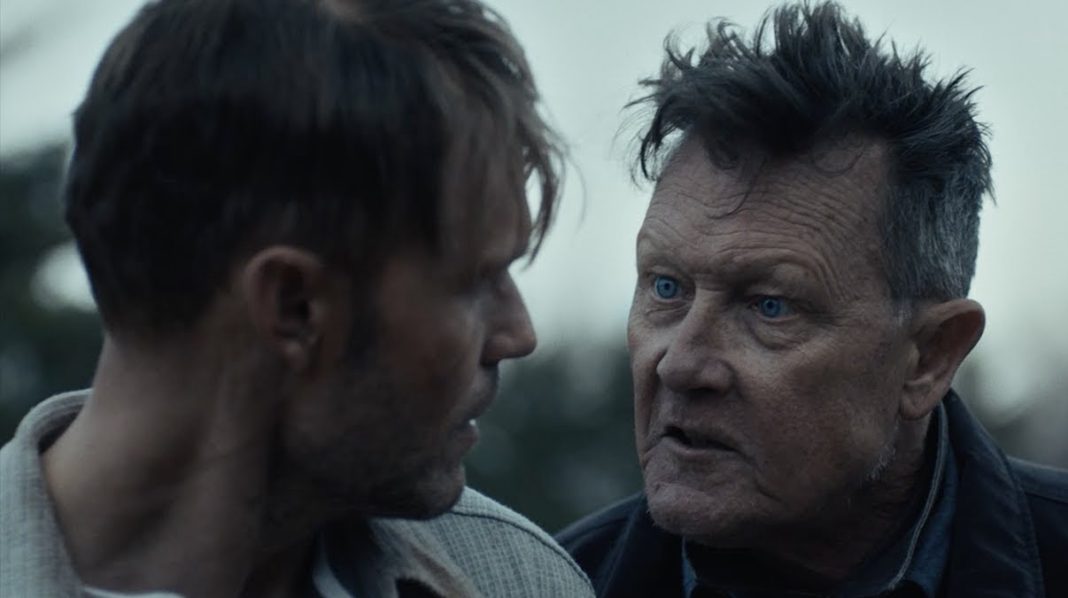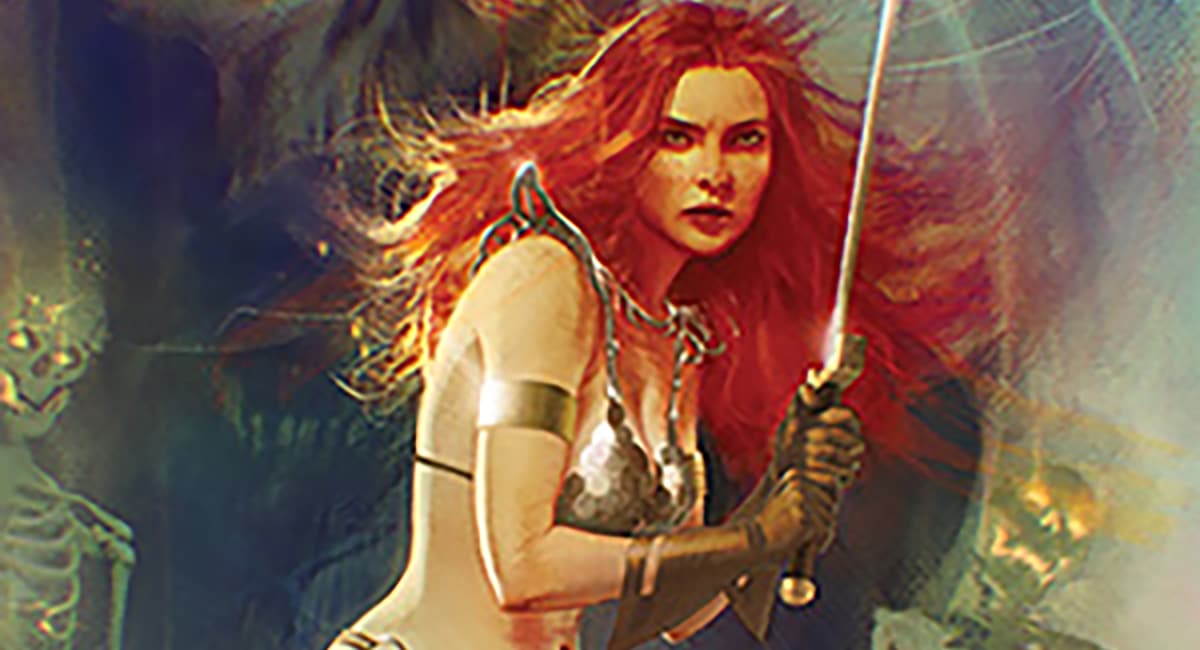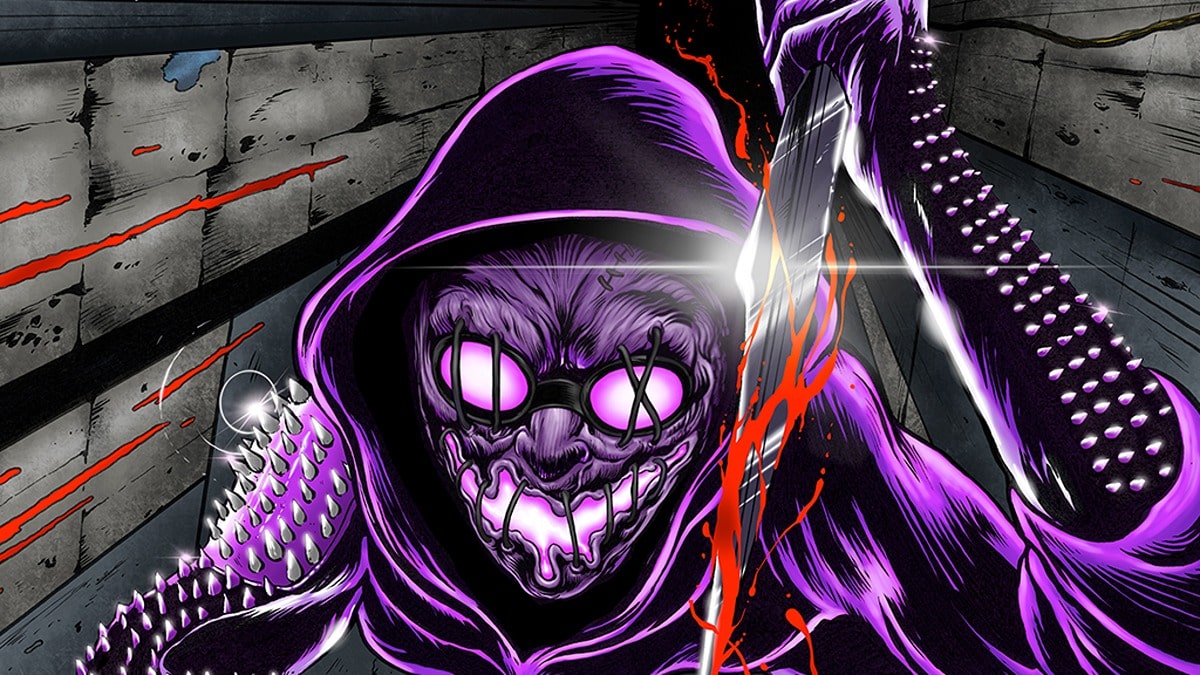Family drama in horror has a certain haunted quality that puts a fair amount of weight on the things that tie us to our blood relations, whether we like them or not. What Josiah Saw (2021), now streaming on Shudder, approaches this idea head-on, but it does so with an interest in pulling back layers of familial dynamics to get at the more secretive aspects of those ties and how they can become so sinister if allowed to fester.
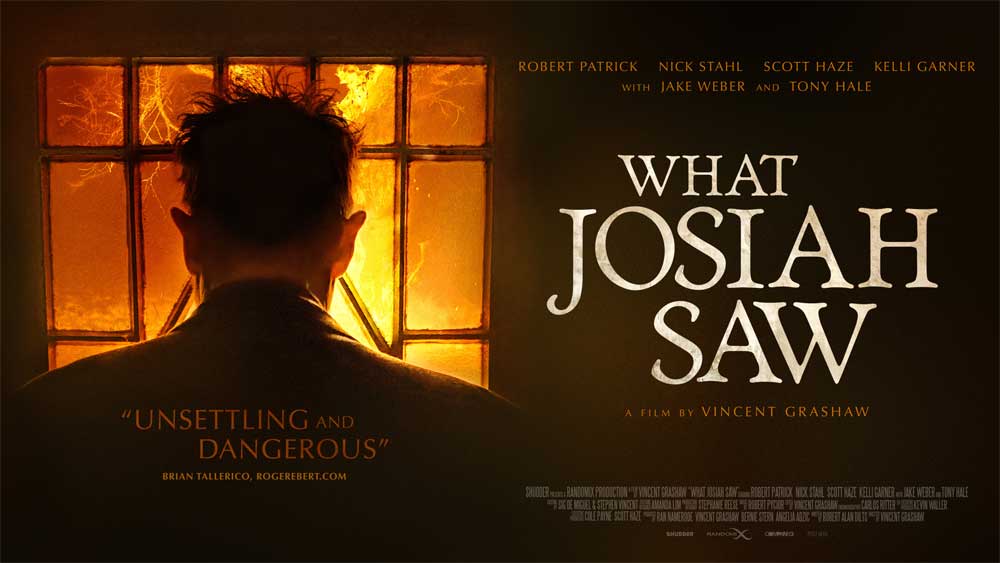
What Josiah Saw follows a small family (two brothers, a sister, and their father) from Texas that’s haunted by a past filled with alcohol abuse, death, mental illness, and secrets that ultimately led to the collapse of their core unit. The story’s broken up into chapters that keep the focus close on each individual family member and the fallout of their tragic time together.
One brother falls in with a bad bunch of people that force him down a path where crime and the supernatural threaten to upend his very existence while the other stays back with his father and suffers through the pains of living with an alcoholic parent. The sister struggles with her own attempt at family life and is constantly reminded of the things it can lead out.
In my review of the film, I stressed the importance of patience when sitting down to watch it. It’s a slow burn of a story that leans heavy on emotional brutality and our resistance to facing demons burrowed deep within family. Thankfully, Vincent Grashaw’s direction and the stellar performances he got out of Robert Patrick, Nick Stahl, Kelli Garner, and Scott Haze as the family at the center of the story made sure the audience’s patience was well rewarded.
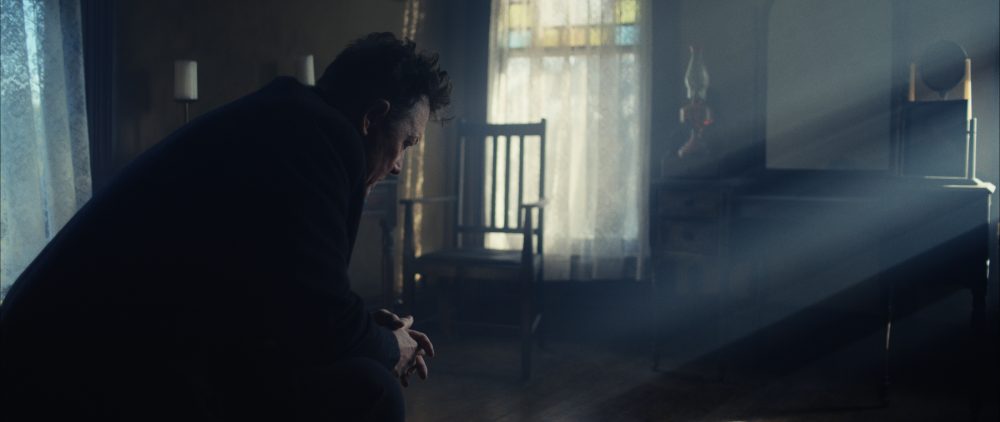
The movie’s been described as a Southern Gothic tale, a label that serves it well, but it’s also a very different kind of horror film that doesn’t just look to rely on certain tropes to paint drama with horror and be done with it. Instead, it actively looks to confront themes that still cause discomfort in public discourse given their thorny landscapes.
In a way, where gothic tales are known for having lonely castles with disturbing histories sitting on remote hills, What Josiah Saw sees an opportunity to turn each of its characters into their own respective gothic castles. The stories they contain are full of horrors worthy of movies all their own.
I got the chance to correspond with director Vincent Grashaw to talk creative process, casting, and the things horror brings to the table when it comes to tackling tough subject matters.
RICARDO SERRANO: What Josiah Saw is a strange kind if horror film in that it alternates between nuance and bluntness in different parts of the story, especially with what certain characters see and experience. What went into the thought process behind putting the film together in terms of themes and character development?
VINCENT GRASHAW: When it came to this story, even though some may contend that it isn’t quite a horror film, to me after reading it, it clearly was. I knew I needed to bridge the horror elements with the dramatic themes. I felt the score by Robert Pycior would help fuse the chapters together in a way that the audience felt the dread and knew that regardless of where certain parts were steering, this was going to bring you back to one place: that creepy damn farmhouse. With the cinematographer Carlos Ritter, production designer Stephanie Reese, and costume designer Amanda Lim, we made sure we were all in sync in terms of the color palettes, the moodiness we were going for and what was needed to really help get into the viewers’ heads on a subconscious level. Someone who reviewed the film recently said they could taste the dirt or feel the sweat or something like that. I can relate to those sort of subconscious feelings after watching certain films and that is what I was going for. That’s when you know the movie you are watching is a lived-in experience and become invested in where it’s going.
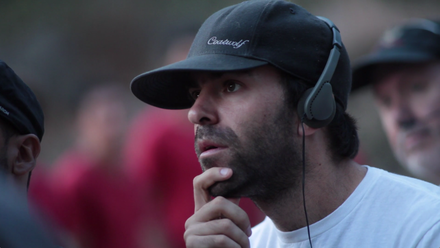
SERRANO: This film tackles certain taboos and difficult family dynamics, especially from a mental illness perspective. You’ve dealt with delicate themes before to great effect (And Then I Go comes to mind). What does horror allow you to do with these types of topics that perhaps other genres require more work or a different approach to engage with?
GRASHAW: Thank you for complimenting And Then I Go, a film I was very proud of! For me, I don’t think simply because something is horror in terms of a genre that it gives me the freedom to work less when it comes to these topics. At least that isn’t my intention as a filmmaker. When it comes to the taboo themes, or disturbing family dynamics, I actually feel more of a responsibility to approach it honestly and take it seriously and try and get it right. These are horrifying things that happen to some people in real life, so what I think makes the difficult parts of this movie so uncomfortable is that it’s honest and raw in the execution. It doesn’t pull any punches.
SERRANO: You got the opportunity to work with a fantastic cast that gave it their all to get to the heart of story. Were there any particular challenges or differences in the process of casting for a horror movie? Did you look for anything in specific in your actors?
Grashaw: I don’t think the approach to casting was different in terms of horror, but it was difficult because of the content therein. Considering how long it took to get the cameras rolling on this project, there were a lot of different possibilities when it came to casting. The first one cast was Scott Haze as Thomas in 2015. I had seen his performance in Child of God and couldn’t imagine someone else taking on this character. I really was nervous about the Thomas character because if done wrong, I felt the whole movie could fall apart. He not only had the chops, but the commitment to getting it right. After him, the late Michael Parks was cast as Josiah. I got them both in a room at Scott’s theater in North Hollywood to workshop some scenes together and see their dynamic.
What happened in that room was something I have a difficult time explaining. Michael Parks was reading his part, but would suddenly look over to me, veer away from the script and the lines, but stayed in character and I didn’t know if he was talking to me or improvising, or what. He kept going and going. I looked at Scott who never really breaks character, but while Michael was doing his thing Scott slowly started to smile. We witnessed something very strange and memorable with him that day.
Unfortunately, Michael passed away shortly after that meeting and the financing fell through, as usual. Honestly, it was tough to find someone to play Josiah because of the content. We had some discussions with a couple actors and the consensus always was they could go there, but they didn’t want to go there. And I understood their logic, if the tough scenes were tackled the wrong way it would be another disaster. Like, an epic disaster. An actor friend of mine, Ronnie Gene Blevins (who plays Billy in the film), told me I should go for Robert Patrick and that he’d help put in a good word. Robert read the script and was gracious enough to hop on a FaceTime call with me to talk about it. He was hesitant to play the role but told me to send him the film I’ve done that I’m most proud of. I sent him And Then I Go which he watched right away, called me back and said, “Goddamn. I guess we’re doing this movie?”
When it came to casting the Eli character, I saw Nick Stahl’s latest headshot and heard he was back to acting after some time away. I’d always respected his body of work and felt he would bring layers to the character that was not in the script. Nick has a gentle nature to him. He’s a very sweet, funny guy. Eli had none of that in the script. I knew Nick had the traits necessary to get an audience to root for him. Kelli Garner had worked with him in Bully, so when our casting directors suggested her for Mary, we straight up just made her an offer. I knew pairing them as twins would work. Tony Hale I had worked with in my previous film and felt this was a departure from anything he’d done, so I asked him to do it. He said as long as he could grow out his beard. He’s one of those actors I hope to put in all of my films. Lastly, Jake Weber is one of the most technically professional actors I’ve ever worked with. If I liked a take, he knew every piece of continuity. He knew what line he lit the cigarette, when he kicked his feet up, every single thing he did. It was remarkable to see.
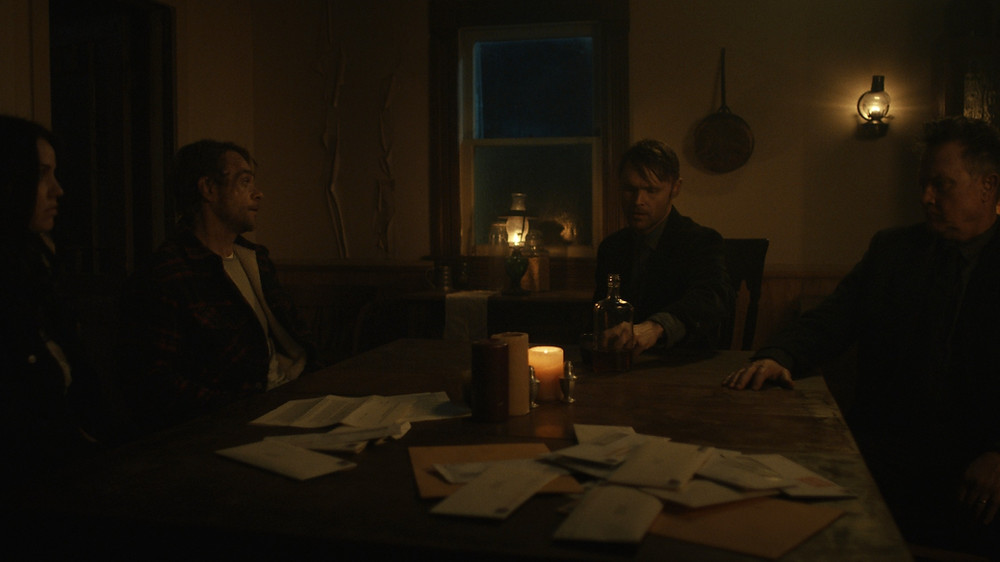
SERRANO: What drew you to Robert Allan Dilts’ script and how did you settle on how you were going to shoot it?
GRASHAW: In terms of settling on where we were going to shoot, it was written for Texas, but we ended up in Oklahoma for financial incentive purposes. They’re one of the most competitive states in the country at the moment in regards to a rebate.
In terms of what drew me to this script, this all began when Robert Alan Dilts started sending me the script pages at a time, asking me my thoughts on it as he was writing. I was floored by the time I finished the first chapter. There was a moment I probably felt this could be going too far, but I didn’t hesitate to push him to keep writing. I didn’t know where it was going, but by the time he finished the script, I knew I wanted on this ride. It felt dangerous and scary to me. This was in 2013, before this new wave of intelligent, psychological horror had come around. Dilts had written a fresh, bold take on a tough subject matter which had a unique story structure with rich, flawed characters. I hadn’t tackled spooky before, so I was also pumped to try and bring humanity to them.
It was very difficult to get it financed though. Everything I found fresh or bold people wanted stripped or changed to something more familiar. “Do we really need that scene at the end of the first chapter? It’s too much. Also, how about we intercut the chapters so there are no chapters?” Basically, I knew that if I took a meeting and these were the things being said, it just wasn’t for them. We made a movie that requires the audience to fully invest some time in and put their phones away. Otherwise, you’re not likely to enjoy the full experience.
SERRANO: Any news you can share on upcoming projects?
GRASHAW: What Josiah Saw took six years to get made. Thanks to Randomix Productions, a relatively new production company started by Ran Namerode, Angelia Adzic and Dana Namerode, they took the leap with us and made it happen. We are partnering again on my next film, Bang Bang which shoots this fall in Kentucky. It deals with a subject matter very close to my heart: Boxing. It’s got some great comedy, drama and a lot of heart. The writer is Will Janowitz and it is one of the best scripts I’ve read in a long time. Yes, it’s a departure from the horror genre, but I definitely will be back. I enjoyed the process of making one too damn much.
What Josiah Shaw is currently streaming on Shudder.


